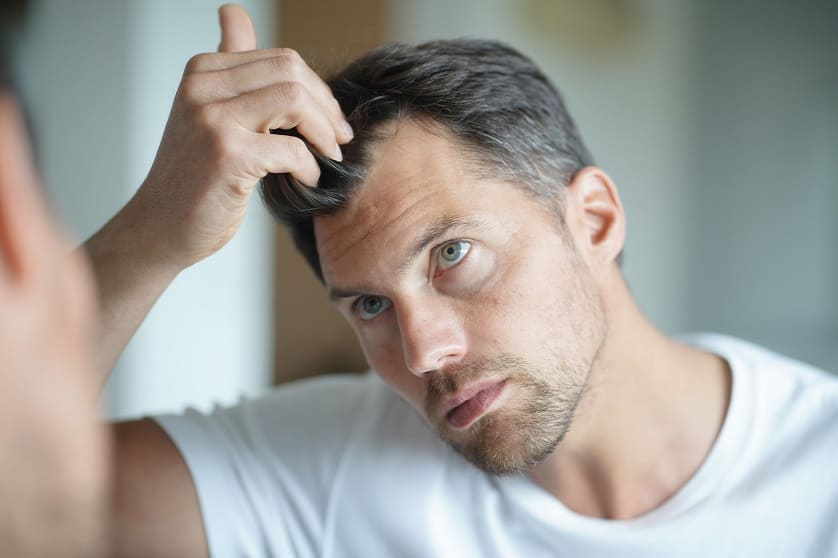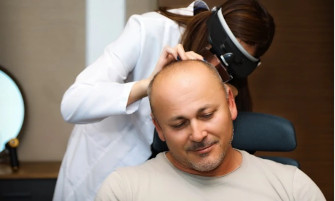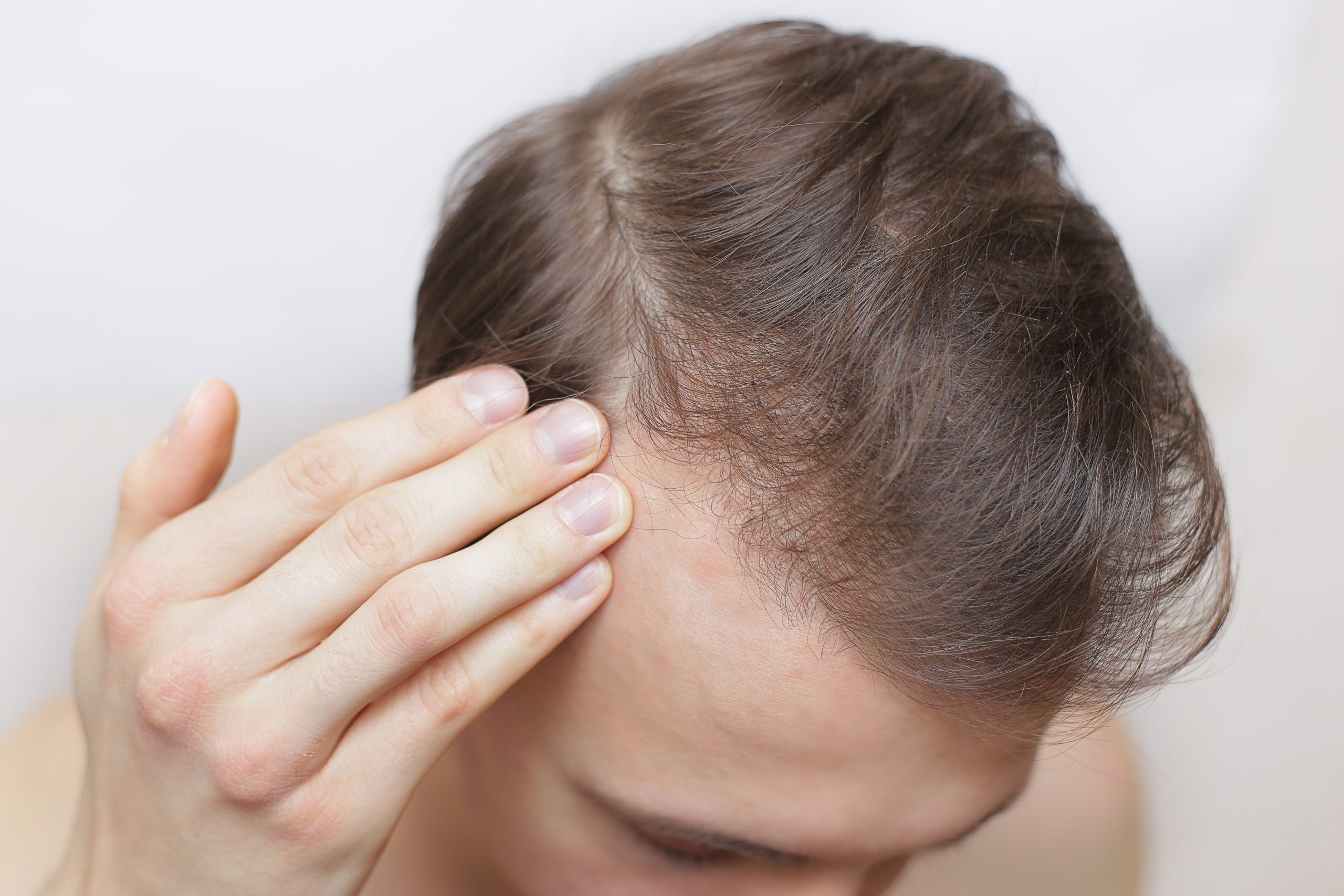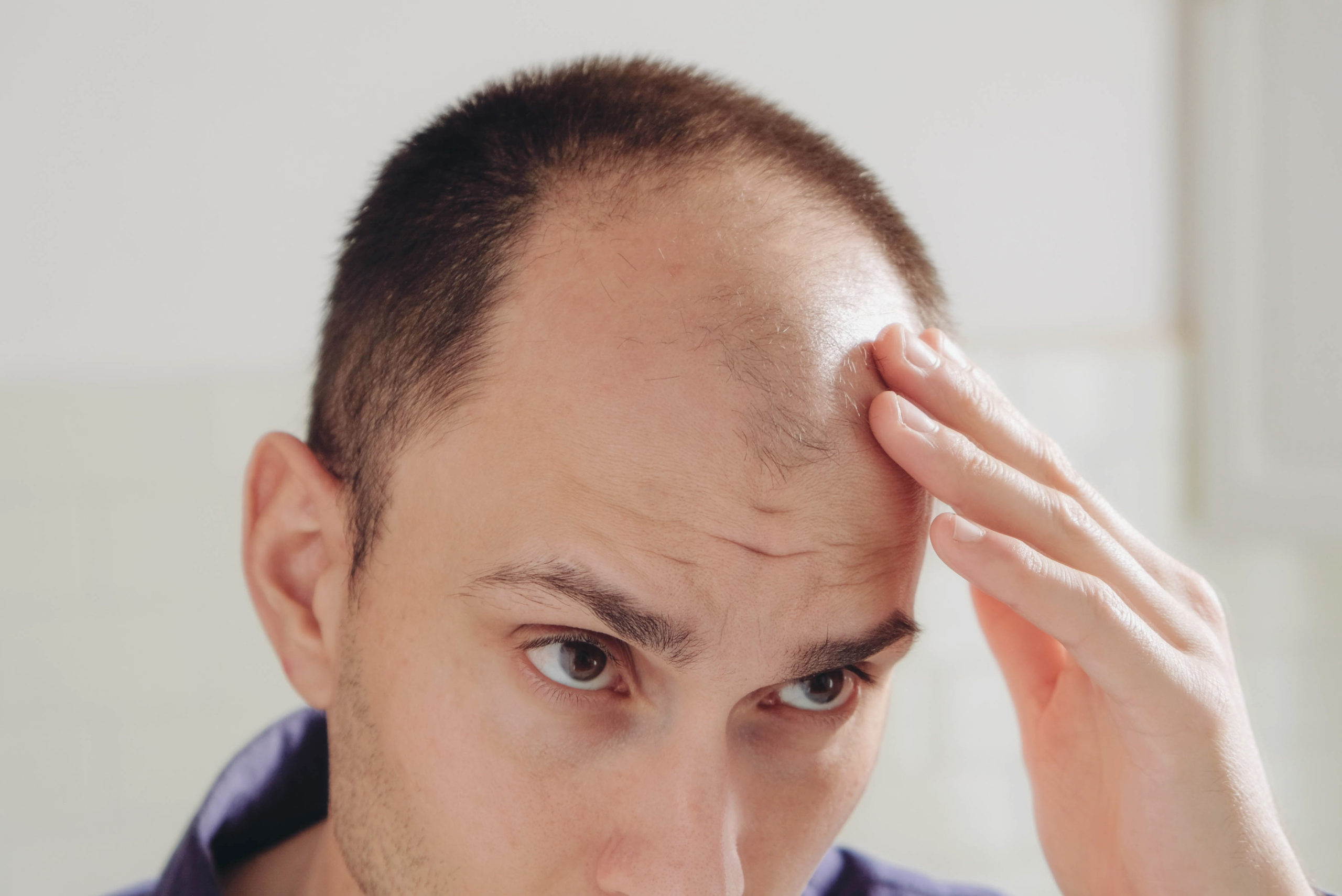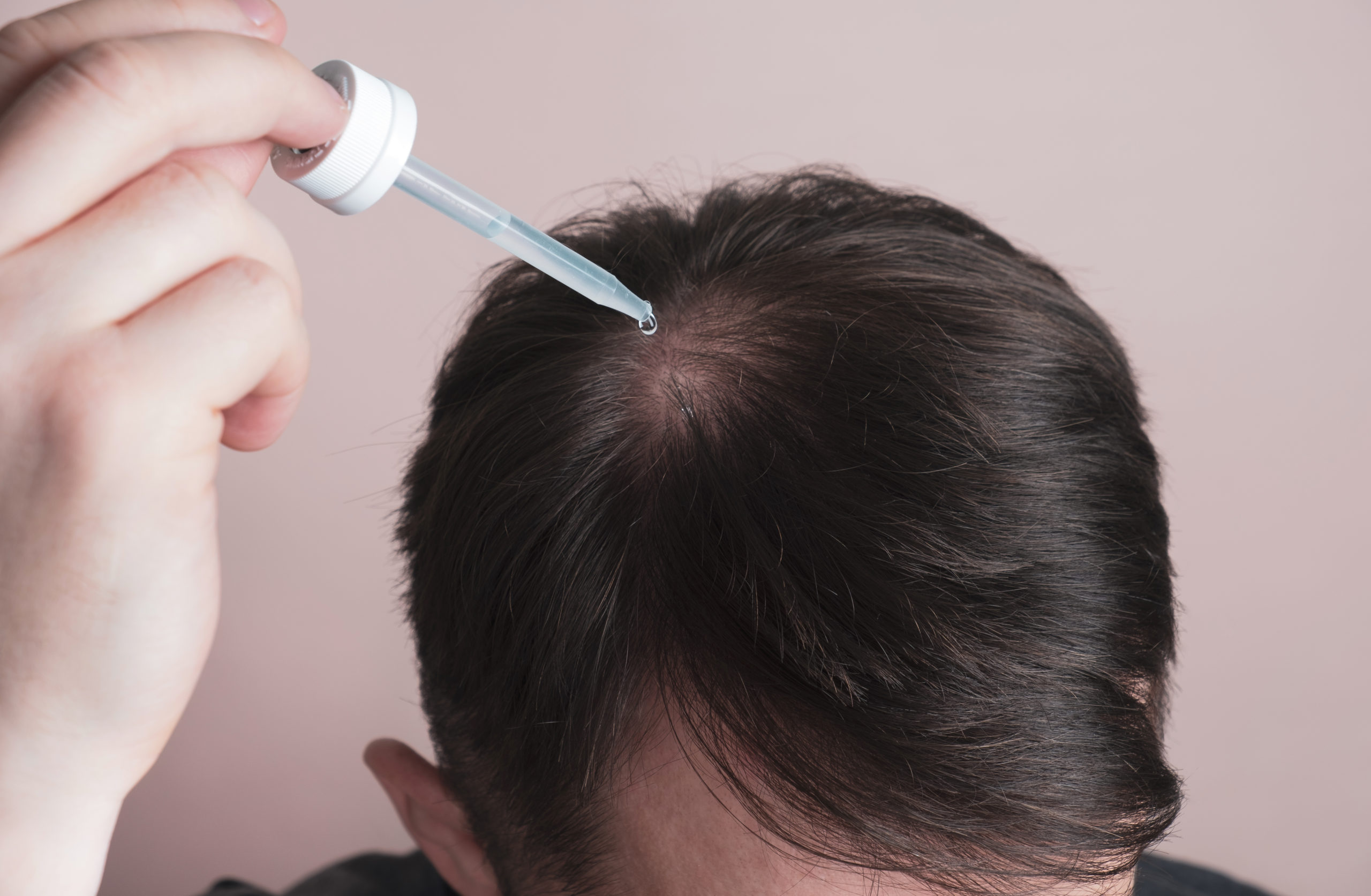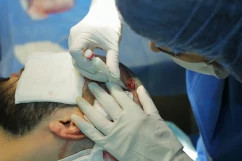The Top 5 Hair Loss Issues
There are several types of hair loss issues which can affect people. Here we will outline the most common ones you may experience and how you can treat them.
1. Hereditary Pattern Baldness
Hair loss issues, which men are especially affected by, are usually hereditary. Also known as androgenetic alopecia, it affects approximately 80 percent of men and 40 percent of women. As a major cause for baldness, one’s own genes are often the culprit. But what makes hereditary pattern baldness such a prevalent issue?
It is very often a hereditary hypersensitivity of the hair follicles to the male hormone testosterone. Particularly under its converted form dihydrotestosterone, also abbreviated as DHT. In women, those symptoms are visible through thinning around the hair parting. While in men the receding hairline and the crown of the head are particularly affected areas.
The diagnosis can usually be made by a dermatologist although having a family history with hair loss issues is a clear sign of this type of hair loss. The difficulty in finding treatment lies in the fact that hair loss from androgenetic alopecia cannot be recovered and will require surgery for a permanent solution.
2. Thyroid Disorder
Both an overactive and underactive thyroid gland can lead to baldness. Almost every second patient is affected, although it is more common amongst women. The hormones produced by the thyroid affect hair production enormously.
Although if the thyroid gland produces too many hormones the hair will initially grow stronger unfortunately it also breaks down very quickly and becomes thinner and finer.
On the other hand an underactive thyroid, as in Hashimoto’s disease, will directly lead to baldness issues. Thyroid disorders must be diagnosed by a family doctor or a specialist. Treatments using medication, like levothyroxine, in order to control the disorder can usually bring about positive results.
Nevertheless it is important to get an early diagnosis for a thyroid disorder. Especially since the hair roots can be permanently damaged if this medical condition is not treated in due time.
3. Alopecia Areata
Alopecia areata is caused by an inflammation in the immune system which attacks the hair follicles. Here the cells mistakenly fight the body’s growth properties and makes the hair fall out in circular patches. The hair loss is unpredictable and usually comes as flare ups that come and go unexpectedly.
Certain treatments have been known to help including topical immunotherapy and cortisone creams which can help to stimulate hair growth again. There are unfortunately no cure for this condition and a hair transplant is only applicable in a case by case basis
4. Hair Loss Issues Due to Medication
Many medications unfortunately have side effects that can lead to baldness. This does not mean that everyone is affected by those, but issues do occur.
The drugs that cause hair loss include:
- various antidepressants
- antibiotics
- antiepileptics
- anti-inflammatory drugs
- beta blocker
- lipid-lowering agents
The connection between medication and hair loss is easy to diagnose. Usually the hair grows back after discontinuing the drug or switching to another one,.
Contrary to androgenetic alopecia, this condition does not lead to permanent hair loss. You can support hair growth by using a special shampoo and changing your diet. Patience, however, will be your best ally to recover your lost hair in this case.
5. Stress
Physical but also emotional stress can cause hair loss in both men and women. It’s important to realise that the body releases substances which directly damage the hair roots. In other words stress can interrupt the natural hair cycle, an issue also known as telogen effluvium.
Here stress levels can be reduced by implementing relaxation techniques and autogenic training. If this condition occurs at a young age (20 to 30) and the treatment starts soon enough, the hair can regrow. One can counter this by taking up a healthy diet and avoiding unnecessary stressful situations.
Conclusion: The Hair Transplant, a Permanent Treatment for Hair Loss Issues
Many of the hair problems presented in this article have causes that are difficult to resolve, especially when noticed too late. If that’s the case then the FUE hair transplantation is the best way to restore the lost hair.
Alopecia can be safely and comfortably treated by transplanting your own grafts to the affected areas. Thanks to this type of surgery, the hair will regrow after one year, leaving no traces of the former hair loss.
So, if you also suffer from an irreversible form of hair loss, modern hair surgery techniques are finally here to help you. Interested? Then don’t wait to call our team of experts who will happily answer all your questions.
